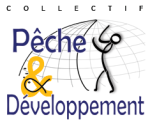In the middle of the 20th century, people believed that marine life was inexhaustible. At the end of the century it was observed that aquatic resources were limited, and that over large areas "fishing banks" had been fully exploited, overexploited or depleted to the extent that more than 400 "dead seas" existed, particularly in parts of the Baltic Sea and on both coasts of the United States.
Some of the solutions attempted to recover lost fishing resources include allowing the industrial fishing fleet from the northern hemisphere to invade areas set aside exclusively for artisanal fishing. Simultaneously, more technologically advanced, large fishing fleets are sent to the "Southern Cone" where through direct agreements with governments, signing of free trade agreements, or illegal, undeclared or unregulated fishing and piracy, fishing stocks continue to be depleted.
The "tragedy of the Commons" (Hardin, 1968) is evident when companies and transnational fishing enterprises obtain access to under-exploited seas and introduce an ever increasing number of ships and technology until the resource is depleted. To suggest that small-scale fishermen are responsible for this "tragedy" is to prepare the ground for stripping them of their way of life.
Another proposed solution is aquaculture, which in the 1970s began with great impetus in shrimp farming. But in less than 40 years, it destroyed more than half of the natural breeding grounds of marine species (those in mangrove and related ecosystems). Other cultivated species occupy large tracts of land and/or sea pouring tons of nutrients (e.g., phosphorus and nitrogen) to the oceans, producing areas of eutrophication, and along with other factors producing negative changes in the chemical and physical parameters of water bodies (e.g., acidification, loss of carbon dioxide absorption capacity).
In 2006 the US International Agency for Development (USAID) funded an assessment of the opportunities and challenges to the conservation of coastal biodiversity in Latin America. The results were used to begin a five year program in 2009 (Task Order under the WATER II IQC) on both coasts of Central America including Belize and Panama. USAID then reached an agreement with the "System of Central American integration" (SICA) adopting the neoliberal strategic objective of : "Economic freedom : open, diversified and economic expansion" whose specific objectives are to promote "Market-based mechanisms," "the rights to access resources," and "Secure access." This last one is to be achieved by "Individual Transferable Fishing Quotas" (ITQ), which means that following a population study of a target marine species (e.g., conch, shark, snapper, lobster, shellfish…), the "Total allowable catch" (TAC) is calculated and from this total the government initially grants a percentage to an individual or a vessel. Then, the beneficiary can treat his concession or quota with all the rights inherent to private property that can be transferred through a sale, lease, inheritance, etc. In addition, with the "mechanisms" already mentioned, exclusive fishing areas under public/private comanagement can be granted ("spatial rights") that remain under the control of private enterprise. In summary, national governments simply grant initial approval. Biodiversity and marine ecosystems are privatized by national and/or foreign entities ; self regulation by the concession recipients is encouraged (!!) ; fisherfolk disappear and become tenants or menial employees of the owners of the ITQs. The ITQs on their own do not meet their conservation goals and the State in fact loses its sovereignty over the sea and its role of management of fishing.
USAID hopes, among other results, by 2014 : at least 10 ITQs established and implemented one for each of 10 selected commercial species. All the Central American countries must adopt in their legislation the "mechanisms" that guarantee the "rights" of the new owners of the seas. 100,000 small-scale fisherfolk" in an area of no less than 1,200,000 hectares will be affected either positively or negatively by the program in both seas of Central America.
The Congress of Honduras, known for being very "helpful," is about to approve the dictates of USAID written into a new draft "Law of fishing and aquaculture." Will the other governments of Central America be just as "helpful" ?
May 6, 2013
Jorge Varela Marquez
Goldman Environmental Award 1999
Translated by Alexis Fossi
 Collectif Pêche et Développement
Pêcher pour vivre
Collectif Pêche et Développement
Pêcher pour vivre
